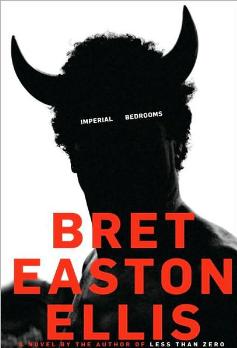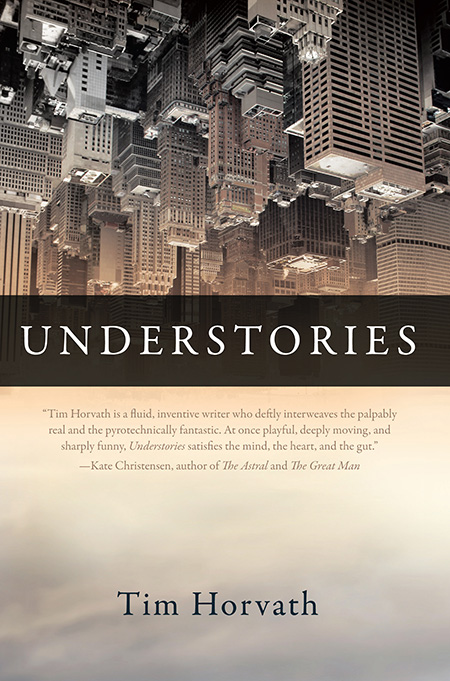As the written word has lost some of its relevance in a sea of glowing screens and an exponential proliferation of Real Housewives that threatens to overrun the United States World War Z style within the next few years, it may be hard to remember that writers were once considered celebrities in their own right. Sure, a lot of people know who J.K. Rowling is, but I can’t help but pine for a time when wordsmiths had a higher profile. Stephen King even did a commercial for American Express!
Writers have an unlikely hero in the new host of The Late Show: Stephen Colbert. In an attempt to distinguish himself from the two Jimmies (Kimmel and Fallon), Mr. Colbert is taking a slightly more intellectual route with the program. Inviting an author onto the show instead of the fifth lead in the latest Michael Bay movie must drive the network crazy? After all, who wants to see an interview with some writer?
We do, of course. In the past couple months, Mr. Colbert has given network air time to writers such as Doris Kearns Goodwin, Stephen King, Jonathan Franzen, George Saunders and Elizabeth Gilbert. George Saunders even read a short story to Mr. Colbert (and the audience). On national television! Look:
Why is it significant to see writers on Colbert instead of Charlie Rose? Why isn’t it good enough that Diane Rehm and Terry Gross interview their fair share of writers? Look, I love the Charlie Rose/NPR kind of interviews, too. The sad truth is that if we want to bring new readers into our circle, we need to seem like lots of fun. Terry Gross is brilliant and fascinating and must be one heck of a party guest, but Omarosa, a woman who breaks into tears when hit on the head with a gram of plaster, will always get more attention in our contemporary culture. Mr. Colbert’s Late Show is a bright carnival of music, humor and energy. When people see Jonathan Franzen participate in the carnival, viewers can see that reading is not necessarily homework and they might enjoy shifting some of their Candy Crush time over to reading.
Do tune in to the Late Show live, but here are some clips of Mr. Colbert interviewing some of our colleagues:
Novel, Television Program
George Saunders, John Irving, Stephen Colbert, Stephen King
You are likely familiar with Bret Easton Ellis for his acclaimed novels and films. He has been a part of the American consciousness since the 1980s, adding his provocative thoughts and challenging art to our public discourse. For the past couple years, The author has produced The Bret Easton Ellis Podcast for Podcast One, chatting with a delightfully wide range of artists, including Kanye West, James Van Der Beek, Kevin Smith and Mark Danielewski. I would probably enjoy the podcast if Mr. Ellis merely asked questions that help his guest illuminate their work, but the episodes do far more important work and writers should pay a lot more attention to what Mr. Ellis is doing.
Quite simply, Mr. Ellis is trying to defend us all against the hypocritical, talentless scolds who have decided that they get to bully artists on the basis of hurt feelings, real or hypothetical. I have dealt with this disturbing phenomenon myself with respect to the Trevor Noah brouhaha-a conflagration long forgotten by the offenders-and I couldn’t stop myself from telling you why I don’t care about the “outrage du jour.” Mr. Ellis’s voice, words and ideas, however, have far more reach than mine do and are far more powerful.
I strongly urge you to simply download the Podcast One app and listen to the BEE Podcast for yourself.
But since I have your attention, I’ll tell you more about why Mr. Ellis’s work is so important and so great. Mr. Ellis begins each episode with a brief commentary that serves as a jumping-off point for the interview he is about to do. The introductions are well-written, of course, but are also filled with interesting and meaningful anecdotes that frame the arguments that begin Mr. Ellis’s interviews. In the Anthony Jeselnik episode (my favorite), Mr. Ellis describes a couple instances from his past in which those close to him have taken offense at art. (In this case, the Bangles’ “Manic Monday” and one of Mr. Ellis’s novels.) From there, Mr. Ellis and Mr. Jeselnik engage in an entertaining discussion that is of great value for all creative people.
While Mr. Ellis touches on a great many issues, the podcast has increasingly addressed the problems caused by the hypocritical moral scolds who seek to straitjacket artists with their simultaneously rigid, amorphous and arbitrary dogmas. The host and Mr. Jeselnik glorify the need for artists to resist the troubling restriction of discourse increasingly urged by the hypocritical moral scolds and the perpetually offended. (And those who are perpetually offended by proxy.)
Why are the talentless hypocritical moral scolds harmful? Mr. Ellis drives home an important point. Their attempts at inclusivity and empathy feature neither quality:
“I remember the need I felt to view experiences, whether it was by writers or filmmakers or poets or musicians or comedians, by artists who had a different viewpoint in mind. I didn’t want what our culture is now demanding: safety and niceness and respectability. Inclusivity. I wanted to be confronted by things. I wanted to be challenged. I didn’t want to live in the safety of my own little snow globe and only be reassured by all the things I liked. To only be surrounded by things that coddled me and made me comfortable. I wanted to stand in other people’s shoes and see how they saw the world, especially if it was so far out of my comfort zone. I craved being shaken. I loved ambiguity. I wanted my mind changed. Getting upset and being damaged by art, being wiped out by the cruelty of someone’s vision of the world, whether it was Shakespeare or Scorsese, had a profound effect on me. It gave me empathy. It helped me realize that there was another world other than mine that existed with other viewpoints, with other opinions, and this aided me in becoming an adult. It moved me away from the narcissism of childhood.”
Bret Easton Ellis is trying to save us from ourselves. Far too many artists have expressed the desire for speech and thought to be regulated. People who make their living and drive the national conversation with rhetoric are begging the government to eliminate rhetoric they don’t like. Words-the very lifeblood of a writer-are being redefined and used as bludgeons to justify the homogenization of artistic discourse.
On his podcast, Mr. Ellis decries the neo-Puritanism of the regressive left critics who complained about the sensationalist violence in Eli Roth’s films.
He decries the flak he and Quentin Tarantino received for the dubious blasphemy of suggesting that Selma wasn’t an aesthetic success.
Writers are duty-bound to stand at the vanguard of protecting the free flow of ideas, not that of stigmatizing words and criminalizing thoughts. The Bret Easton Ellis Podcast glorifies the creation of art and rhetorically eviscerates the talentless hypocritical moral scolds who want to turn storytelling into a Two Minutes Hate session in a re-education camp.
If you found my analysis useful or enjoyed my writing style, would you consider checking out Great Writers Steal Press, where I have published some eBooks of the fiction and nonfiction variety? Just head over to books.greatwriterssteal.com, where reading is not homework!
Novel
Anthony Jeselnik, Bret Easton Ellis, Podcast
The year was 1995. Hope was high and life was worth living. “Google” meant a large number. Some phones still had cords and it was really hard to sext if you were using a rotary dial.
1995 was the heyday of American culture and you couldn’t log into AOL via dialup without reading about The X-Files. Mulder and Scully were the hottest protagonists on TV and David Duchovny and Gillian Anderson together were singlehandedly spurring interest in the newfangled Internet. Not only were both of them physically attractive, but both projected a distinct intelligence and depth. So strong was their chemistry and the stories they told that The X-Files is returning for a six-episode miniseries event in January 2016.
Yes, in 1995, it seemed that David Duchovny could do anything. (Now he can only do 99.5% of the things.) He could even introduce teenage me to William Carlos Williams.
In those days, I consumed as much information as I could about the show and dreamed of one day writing for such a program. I remember the September 1995 issue of Entertainment Weekly because Benjamin Svetkey’s article pointed out that David Duchovny, this big TV star, wrote poetry.
“Hey!” I thought. “I write poetry! I could be like him, just without the money or women!”
I wasn’t particularly moved by the episode in which Mr. Duchovny wore a red Speedo, but I knew many others were. I did, however, appreciate Mr. Duchovny’s off-the-cuff twist on some guy named William Carlos Williams:
My Speedo
So much depends upon a red Speedo
Covered with rain
The next time I was in the school library, I looked up this William Carlos Williams fellow and found my horizons expanded. I thought about the connection between Mr. Williams’s wheelbarrow and Mr. Duchovny’s Speedo and, well, I tried not to read too much into it.
The point is that my enjoyment of the interview and my respect for Mr. Duchovny increased once I understood the allusion he was making. (It’s important for a writer to have a wide frame of reference.) Now that I’m slightly more mature than I was in 1995, I can also appreciate that Mr. Duchovny was blending high and low culture. (I sometimes feel the balance is…off.) Mr. Duchovny and Mr. Williams also offer poetry that is abstract, but is relatively easy to understand and enjoy if you give it a chance. (As I keep saying, we need to #MakeMoreReaders.)
Why not follow Mr. Duchovny’s lead and rewrite a classic poem of your own? While you are at it, check out Mr. Duchovny’s novel as you wait for the X-Files premiere on January 24. We can’t go back to 1995, when the sun shone and the lilacs were in bloom. We can, however, be like Mulder and Scully-and Duchovny and Anderson-by showing the world that age may take its toll, but we can still produce better work than ever before. Even though we may want an occasional nap or a pair of comfortable shoes.
If you found my analysis useful or enjoyed my writing style, would you consider checking out Great Writers Steal Press, where I have published some eBooks of the fiction and nonfiction variety? Just head over to books.greatwriterssteal.com, where reading is not homework!
Poem
David Duchovny, The X-Files, William Carlos Williams
Tim Horvath is one of the writers I admire for their ability to tell interesting stories against interesting backdrops in interesting ways. Like T.C. Boyle, he is equally comfortable writing a “traditional” story about a divorcee who has a brother who is in perpetual search of his next get-rich-quick scheme and a German expat arborist who taught biology alongside Heidegger as Hitler launched his pathetic and effective attack on Jewish intellectuals. Mr. Horvath’s collection, Understories, weaves a tapestry of imagination, alternating between good, old-fashioned short stories and short shorts that demonstrate how exciting contemporary literature can be if we privilege idea and narrative.
Please follow along by reading the story. Understories is more than worth the purchase price and you should really consider buying it from its publisher, Bellevue Literary Press. The book is also available at Barnes & Noble, Amazon, and Kobo. May I also suggest that you get the book from your local indie bookseller? That’s what I did. The fine folks at The River’s End Bookstore in Oswego, New York are always happy to get you any book that you like and the same can be said for the owners of the indie store nearest you. If you are on a college student’s budget (or that of an adjunct college teacher), you can read the story through your library’s database; it first appeared in Conjunctions.
In this installment of the GWS First Page Inquisition, I will take a look at the very beginning of “The Discipline of Shadows,” a story that Mr. Horvath was inspired to write by a random exercise suggested by his writing group. If you juxtapose the anecdote describing the story’s origin with the story itself, you’ll see the intersection of inspiration and creation. Mr. Horvath was not held thrall by the initial spark that led him to put pen to paper; he let the idea evolve and ended up telling the reader a ripping story.
Without further ado, let’s look at the first page of Mr. Horvath’s story and see what makes it so great and effective.
Up on the chair, I reach for the ceiling and beat the vents, sending mold fluttering downward. Like some black rain, it lands variously on me, on chipped, yellowing tiles, on the paperwork fanned out over my desk. It speckles the latest budget, leaves a trail of powder on the glossy cover of the newest International Journal of Umbrology. It must be going into my lungs. I think about miners descending, invisible until the shaft collapses and the cameras swarm. Maybe, I think, this is what we need-some tragedy. Something more than mere scandal. More than Lew and his lawyer. More than the death of a department, which is like an animal, already limping, vanishing at last under the wheels.
I won’t have time to change my shirt before the big meeting, and for a moment I regret this. After all, lawyers and trustees, the titled and brass-nameplated, will be there. Lew’s “representation,” all the way from Lower Manhattan. At yesterday’s department meeting, the guy sat with Lew, hovering at the edge of my vision, a thick-browed smudge of pleated charcoal. Finally, I wanted to confront him. “Mr. Vadrais,” I wanted to say, “at the end of a workday, when you exit Two Fourteen Pearl, do you ever pause to take in the shadows?” I felt them like a chill, then, those revenants of an older New York, strewn across the narrow, birdshit-encrusted streets.
But I held my tongue. He would have been mystified, and the rest of them would’ve all thought I was losing it.
That’s it. 257 words. Let’s do an inventory of all of the exposition that Mr. Horvath crammed into the first page of his story:
- The story is in the first person.
- The protagonist is in a dusty/lived-in environment.
- The protagonist is a devotee of “Umbrology,” some kind of obscure scholarly pursuit.
- There’s trouble in the academic department that “some tragedy” may avert. (These are big stakes!)
- There is a lawyer involved…that’s never good.
- A “big meeting” will be attended by trustees and attorneys. Again, big stakes.
- The protagonist offers some insight into the poetry of Umbrology and that it relates to shadows.
The first page does its job because it does the basics, introducing character and tone and setting; the reader is quickly immersed in the world of the story. Mr. Horvath is also wise to establish some stout stakes. What will happen to this “discipline of shadows?”
The most important function that the first page serves is to ground the chronological narrative in the context of the rest of the story. Now, I really loved this story, or else I wouldn’t have written about it. But Mr. Horvath violates some of the Aristotelian Unities in a beautiful way. The first page of the story is one of many sections that take place in a wide range of settings and over a great many years. Ordinarily, bopping through time in a Whovian fashion might make it hard to understand what is going on. Instead, Mr. Horvath introduces all of the bits that are important in the dramatic present before dropping sections that are small patches of exposition or miniature narratives. For example, we get a detailed description of the state of the Umbrology department, advice for applying to such a department and a digression about the shadows that make a person fall in love with the field. These sections might be seen as tangents if Mr. Horvath hadn’t made a solemn promise on the first page: that he will tell you the story of how the Department of Umbrology slowly fades into darkness like the surface of the moon during a lunar eclipse.
If you found my analysis useful or enjoyed my writing style, would you consider checking out Great Writers Steal Press, where I have published some eBooks of the fiction and nonfiction variety? Just head over to books.greatwriterssteal.com, where reading is not homework!
Short Story
Bellevue Literary Press, GWS First Page Inquisition, Tim Horvath




